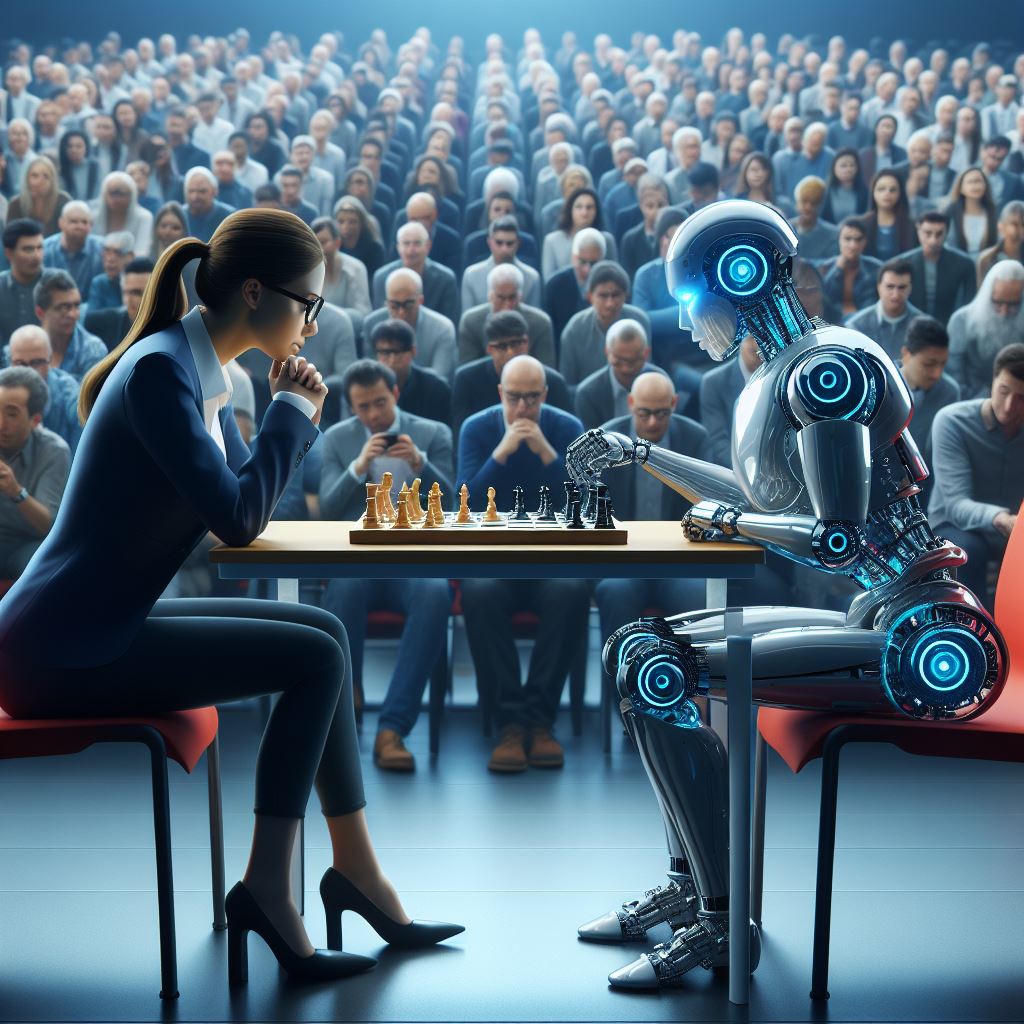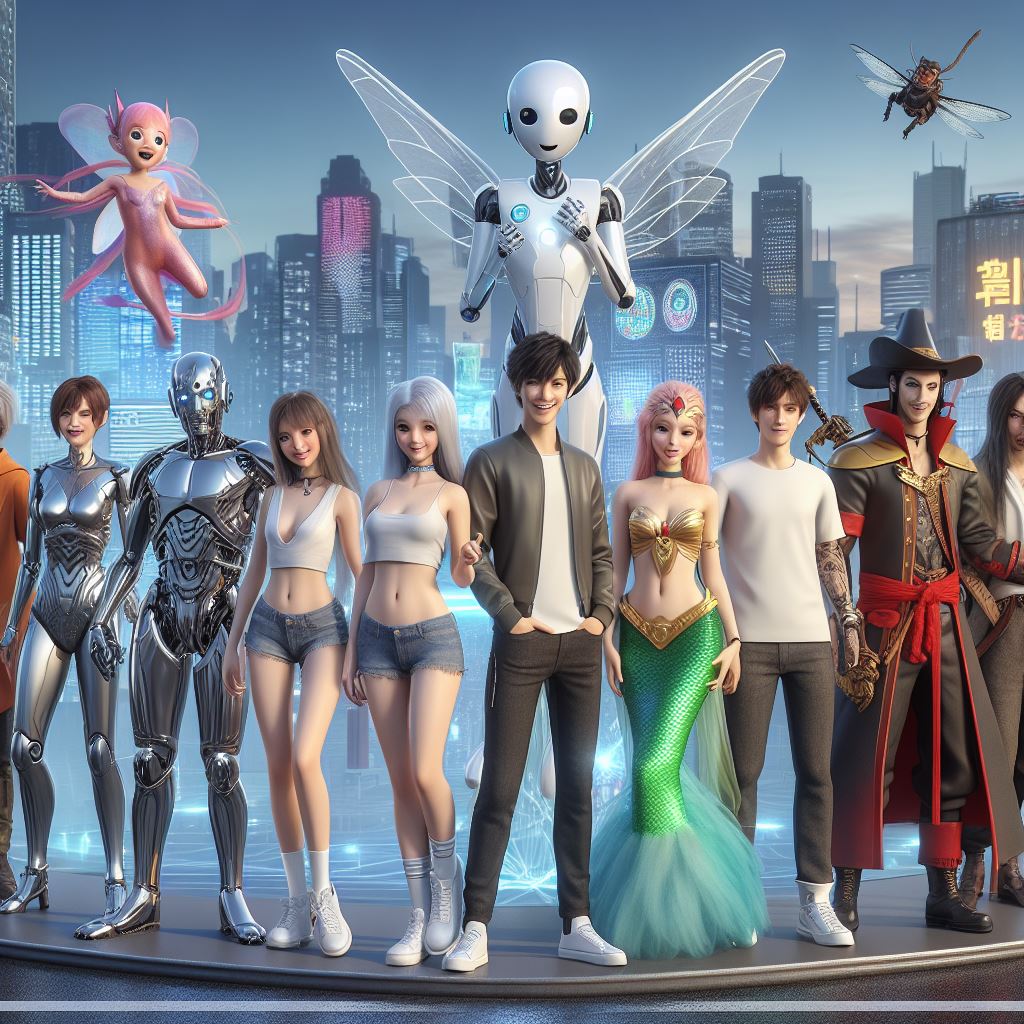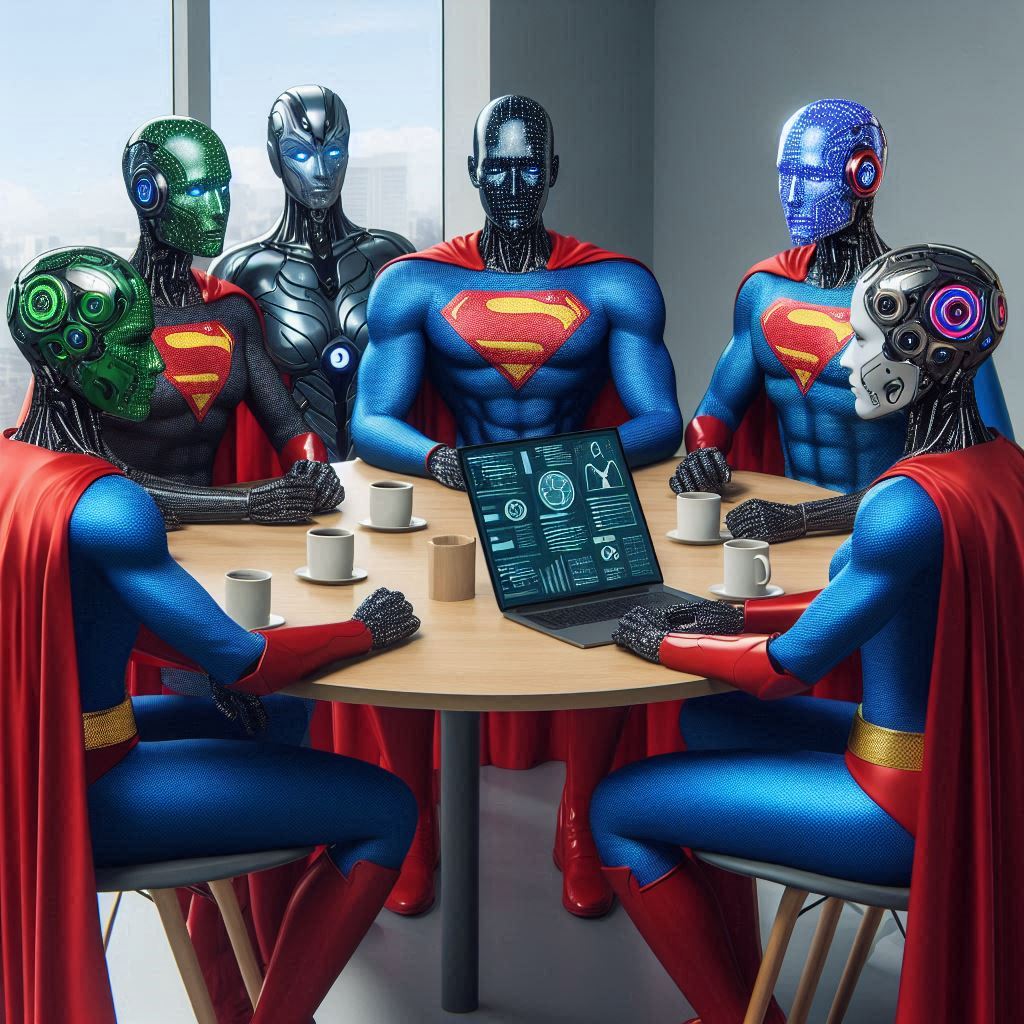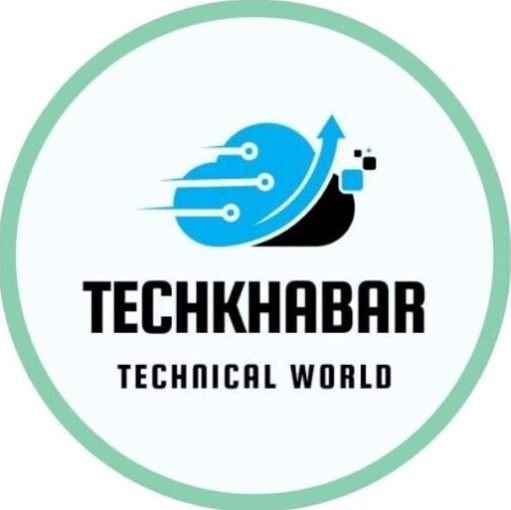Artificial Intelligence vs Humans in 21st century : Exploring the Competition Between New Virtual Models and Human Influencers
Introduction:
Artificial Intelligence vs Humans in 21st century : Exploring the Competition Between New Virtual Models and Human Influencers , In today’s digital age, the rise of artificial intelligence (AI) has brought about profound transformations in various aspects of our lives, including the realm of influencer marketing. As AI-powered new virtual models and influencers gain traction, they pose a formidable challenge to their human counterparts. In this comprehensive exploration, we delve into the dynamics of this evolving landscape, examining the impact of AI on influencer marketing, the advantages and limitations of new virtual models, and the implications for human influencers. By navigating the intricate interplay between technology and human creativity, we seek to unravel the complexities of this emerging phenomenon.
Artificial Intelligence vs Humans in 21st century : Exploring the Competition Between New Virtual Models and Human Influencers

Artificial Intelligence vs Humans in 21st century :
Artificial Intelligence vs Humans in 21st century : Exploring the Competition Between New Virtual Models and Human Influencers explore, The 21st century marks a pivotal era in the dynamic interplay between artificial intelligence (AI) and human capabilities, profoundly transforming various aspects of society, economy, and daily life. AI, with its remarkable ability to process vast amounts of data, perform complex calculations, and learn from patterns, has become an integral part of fields such as healthcare, finance, transportation, and entertainment.
Machines equipped with AI can diagnose diseases with higher accuracy, predict market trends with precision, drive autonomous vehicles, and even create art and music. However, this rapid advancement brings forth critical questions about the role of humans in an increasingly automated world. While AI excels in tasks that require speed, consistency, and data-driven decision-making, humans continue to outperform in areas that demand creativity, emotional intelligence, ethical judgment, and nuanced understanding.
Artificial Intelligence vs Humans in 21st century : Exploring the Competition Between New Virtual Models and Human Influencers, The synergy between AI and human intelligence holds the potential for unprecedented innovation, but it also necessitates a thoughtful approach to addressing ethical considerations, job displacement, and the need for upskilling the workforce. In essence, the 21st century is not just about AI versus humans; it is about fostering a collaborative coexistence where both entities complement each other’s strengths to drive progress and improve the quality of life.
Exploring the Competition Between New Virtual Models and Human Influencers:
“Artificial Intelligence vs Humans in 21st century : Exploring the Competition Between New Virtual Models and Human Influencers”
- The Evolution of Influencer Marketing:
1.1. Rise of Social Media Influencers:

Artificial Intelligence vs Humans in 21st century : Exploring the Competition Between New Virtual Models and Human Influencers, In recent years, social media platforms such as Instagram, YouTube, and TikTok have become fertile grounds for influencer marketing, with individuals leveraging their online presence to promote products, services, and brands.
Human influencers, with their authenticity, relatability, and storytelling prowess, have cultivated loyal followings and wield significant influence over consumer behavior.
1.2. Emergence of AI-Powered Virtual Models:
Artificial Intelligence vs Humans in 21st century : Exploring the Competition Between New Virtual Models and Human Influencers, Concurrently, AI technology has given rise to virtual models and influencers, such as Lil Miquela and Shudu Gram, who blur the lines between reality and simulation.
These virtual entities, created using advanced graphics and animation techniques, offer brands a new avenue for marketing and engagement, devoid of the limitations of human influencers.
- The Impact of AI on Influencer Marketing:
2.1. Personalization and Targeting:
Artificial Intelligence vs Humans in 21st century : Exploring the Competition Between New Virtual Models and Human Influencers, AI algorithms enable brands to analyze vast amounts of data and tailor content to specific audience segments, ensuring personalized and targeted messaging.
Virtual models, powered by AI, can adapt their appearance, personality, and messaging to resonate with diverse audiences, maximizing engagement and conversion rates.
2.2. Cost-Effectiveness and Scalability:
Artificial Intelligence vs Humans in 21st century : Exploring the Competition Between New Virtual Models and Human Influencers, Compared to human influencers, virtual models offer brands a cost-effective and scalable solution for marketing campaigns, with lower production costs and no contractual obligations.
AI-driven virtual influencers can generate content round-the-clock, engage with followers across multiple platforms, and scale campaigns seamlessly, without the limitations of human availability.
- Advantages and Limitations of Virtual Models:

3.1. Advantages:
Artificial Intelligence vs Humans in 21st century : Exploring the Competition Between New Virtual Models and Human Influencers,
Consistency and Reliability: Virtual models offer brands consistency in appearance, messaging, and behavior, eliminating the variability associated with human influencers.
Immersive Brand Experiences: AI-powered virtual models can inhabit virtual worlds, participate in interactive experiences, and transcend the boundaries of physical reality, offering immersive brand engagements.
3.2. Limitations:
Artificial Intelligence vs Humans in 21st century : Exploring the Competition Between New Virtual Models and Human Influencers
Authenticity and Emotional Connection: While virtual models excel in visual appeal and technical precision, they often lack the authenticity and emotional depth inherent in human interactions.
Creative Constraints: Despite advances in AI, virtual models may struggle to replicate the spontaneity, creativity, and improvisation of human influencers, limiting their appeal in certain contexts.
- Implications for Human Influencers:
4.1. Differentiation and Value Proposition:
Human influencers must differentiate themselves by leveraging their authenticity, expertise, and unique perspectives to offer value beyond what AI-powered virtual models can provide. Artificial Intelligence vs Humans in 21st century : Exploring the Competition Between New Virtual Models and Human Influencers.
By focusing on storytelling, personalization, and genuine connections with their audience, human influencers can carve out a niche and establish themselves as trusted voices in their respective domains.
4.2. Collaboration and Hybrid Models:
Rather than viewing AI as a threat, human influencers can embrace collaboration with virtual models and AI technologies to enhance their content, reach new audiences, and unlock creative possibilities.
Hybrid models, combining the authenticity of human influencers with the scalability of AI, offer a compelling approach to influencer marketing that leverages the strengths of both worlds.
- Ethical Considerations and Future Outlook:

5.1. Transparency and Disclosure:
As AI-powered virtual models become increasingly indistinguishable from humans, ethical considerations surrounding transparency, disclosure, and authenticity come to the forefront.
Brands and influencers must uphold ethical standards and ensure transparency in their marketing practices to maintain trust and credibility with consumers.
5.2. Future Outlook:
The convergence of AI and influencer marketing is poised to reshape the industry landscape, blurring the lines between reality and simulation.
As AI technologies continue to evolve, the role of human influencers will evolve as well, with authenticity, creativity, and empathy emerging as key differentiators in an increasingly automated world.
Conclusion:
Artificial Intelligence vs Humans in 21st century : Exploring the Competition Between New Virtual Models and Human Influencers , The competition between artificial intelligence and humans in the realm of influencer marketing heralds a new era of innovation, creativity, and disruption. While AI-powered virtual models offer brands scalability, consistency, and immersive experiences, human influencers bring authenticity, creativity, and emotional connection to the table.
By navigating the complexities of this evolving landscape, brands and influencers can harness the synergies between technology and human creativity to create impactful and meaningful engagements with audiences. As we look towards the future, the coexistence of AI and human influencers presents exciting opportunities for collaboration, experimentation, and growth in the dynamic world of influencer marketing.
FAQ:
Q1.- Can AI replace human intelligence?
ANS- No, since humans are the ones creating AI applications through programming and algorithms, AI will not replace human intelligence. Automation facilitates the replacement of manual labor, and modern AI technologies facilitate the completion of difficult jobs across all industries.
Q2.- How is artificial intelligence different from human interaction?
ANS- Artificially intelligent robots are not programmed to read facial expressions or moods; people are able to convey their emotions and read others. AI-enabled devices can mimic human speech, but because they are unable to feel empathy or other emotions, they lack the human touch.
Q3.- What is the relationship between human and artificial intelligence?
ANS- A machine with artificial intelligence (AI) can think and learn like a human. The brains of humans are able to think and make rational decisions. AI consists of human-like thinking and learning systems. AI has been applied to automate tasks in a wide range of fields.
Q4.- How is AI affecting real life?
ANS- Our everyday routines have been completely transformed by artificial intelligence (AI), which gives us the comfort and efficiency we need to complete jobs faster. Artificial intelligence (AI) mimics human thought processes and is now a part of daily life. AI is transforming the way we work and live, from voice assistants to smart home appliances.

